Using the USB port
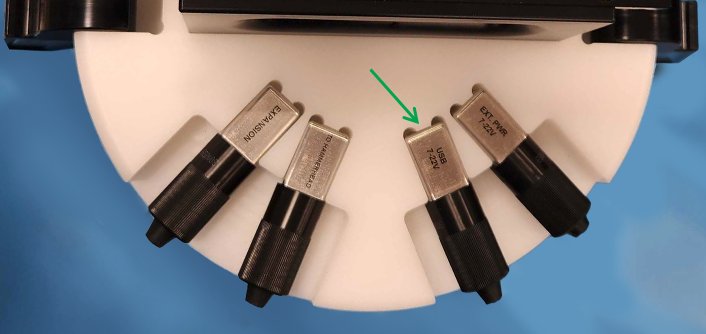
Tools needed
USB to MCIL-6-FS cable (provided)
Computer with a USB port
Serial terminal
. External MCBH-6-MP USB connector pinout
 | Pin No. | USB |
1 | Ground | |
2 | Power +7 to +22 V | |
3 | N/C | |
4 | Power: 5V | |
5 | D- | |
6 | D+ |
USB Patch cable
Part No. | 2-metre patch cable | Notes | |
|---|---|---|---|
0011088 | USB - MCIL-6-FS to USB-C | For instruments with USB output. Includes a power terminal block. No extension cable available for USB. | |
 | |||
Windows
On a Windows-based workstation, use any terminal emulator console that supports a serial port, such as Tera Term.
Tera Term
Tera Term is an open-source terminal emulator that lets you connect to hosts via serial port or the network. The default settings should work with the RBRcervello interface. In the unlikely event when they do not, load the configuration file provided below using the "Setup→Restore setup" menu.
Tera Term
Alternatively, configure the settings manually as follows:
In "Setup→Terminal setup" menu, enter the terminal size:
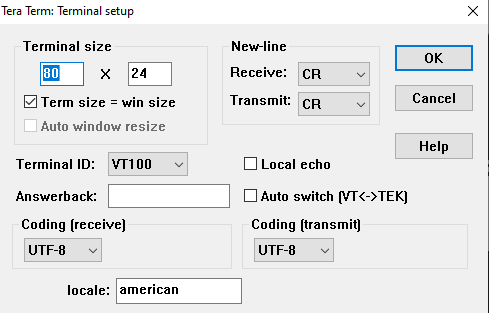
In "Setup→Keyboard setup" menu, select "Delete key":
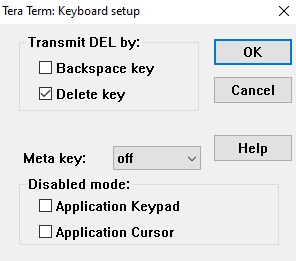
In "Setup→Serial port setup and connection" menu, select the correct COM port:
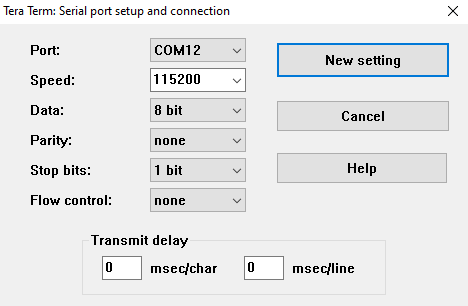
Highlighting text on the terminal automatically copies it to the clipboard. Right-clicking on the terminal will paste the saved text on it.
Linux
On a Linux-based workstation, use any terminal emulator console that supports a serial port, such as Minicom.
Minicom
Minicom is a serial communication program that connects to devices through a GNU/Linux serial ports. Use the "-s" command to set up the terminal with the right port and settings, or execute it with explicit settings at runtime with the correct device:
minicom -D /dev/ttyACM0To copy and paste text from and to a Linux terminal, use Ctrl+Shift+C and Ctrl+Shift+V.
Due to the nature of virtual serial ports, the baudrate is unimportant and can be set to an arbitrary value.
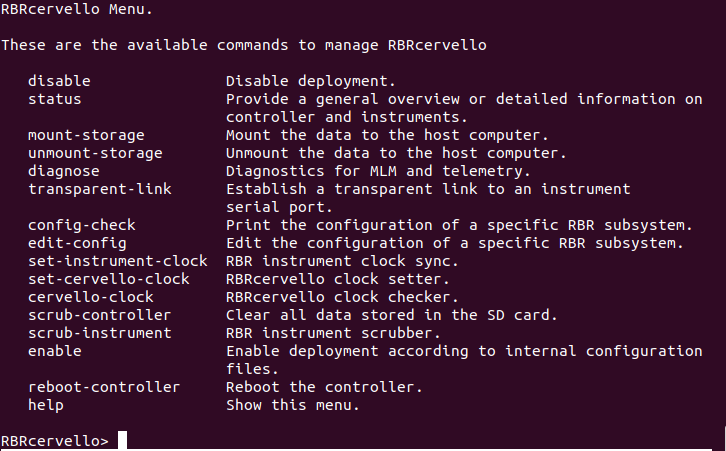
Minicom
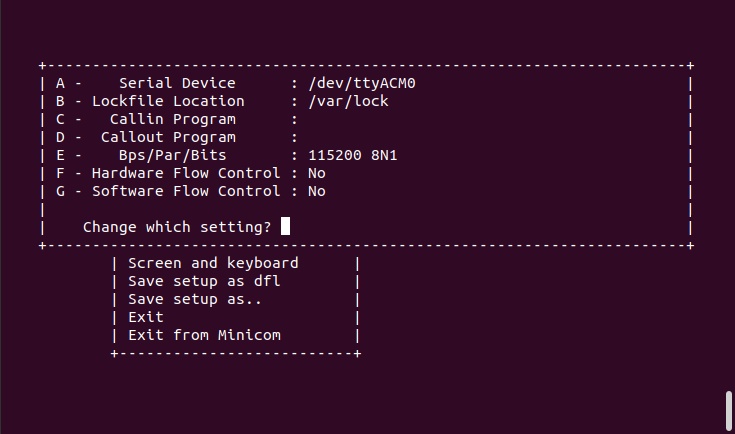
Minicom serial settings
Diagnostic menu overview
Access the RBRcervello menu via the diagnostic port. It is a fully-featured Bash terminal (Restricted Bash) with "tab" completion. To see the list of available commands, execute the "help" command. You will find all you need to deploy the RBRcervello with the RBR instruments. As a quick in-menu reference, each command displays a short manual when executed with the "-h" or "--help" argument.
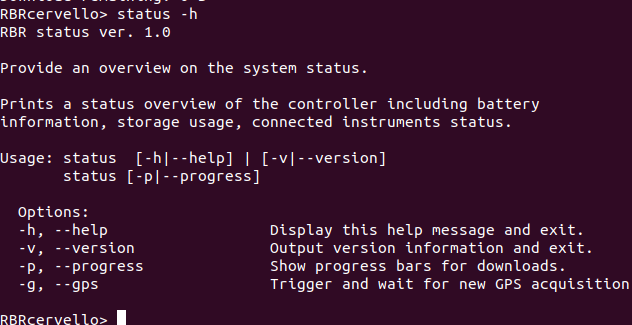
"status" help
RBRcervello Menu.
These are the available commands to manage RBRcervello:
disable Disable deployment.
status Provide a general overview or detailed information on controller and instruments.
mount-storage Mount the data to the host computer.
unmount-storage Unmount the data to the host computer.
diagnose Diagnostics for MLM and telemetry.
transparent-link Establish a transparent link to an instrument serial port.
config-check Print the configuration of a specific RBR subsystem.
edit-config Edit the configuration of a specific RBR subsystem.
set-instrument-clock RBR instrument clock sync.
set-cervello-clock RBRcervello clock setter.
cervello-clock RBRcervello clock checker.
scrub-controller Clear all data stored in the SD card.
scrub-instrument RBR instrument scrubber.
enable Enable deployment according to internal configuration files.
reboot-controller Reboot the controller.
help Show this menu.See the Diagnostic menu section for more information.
